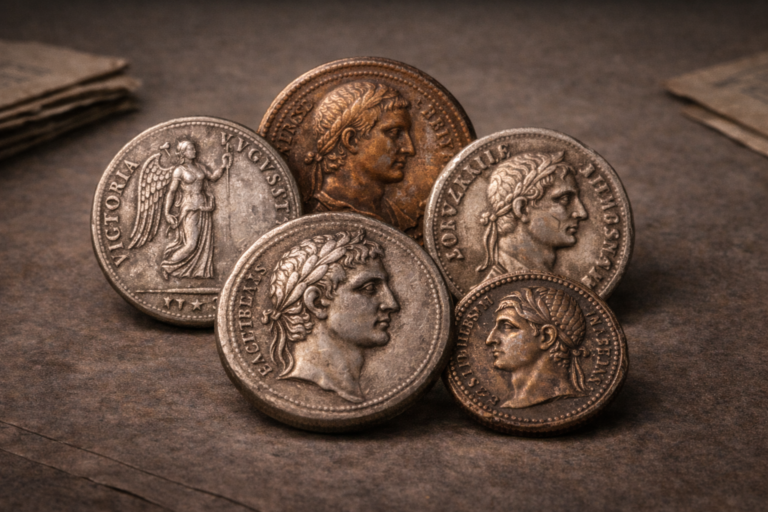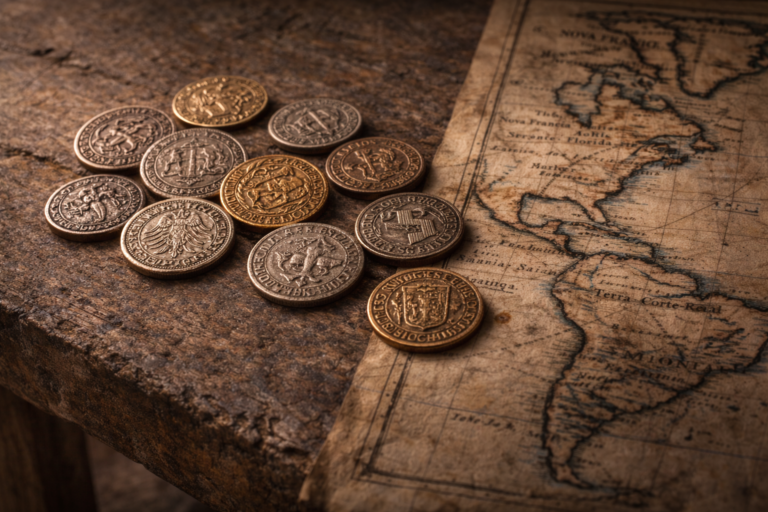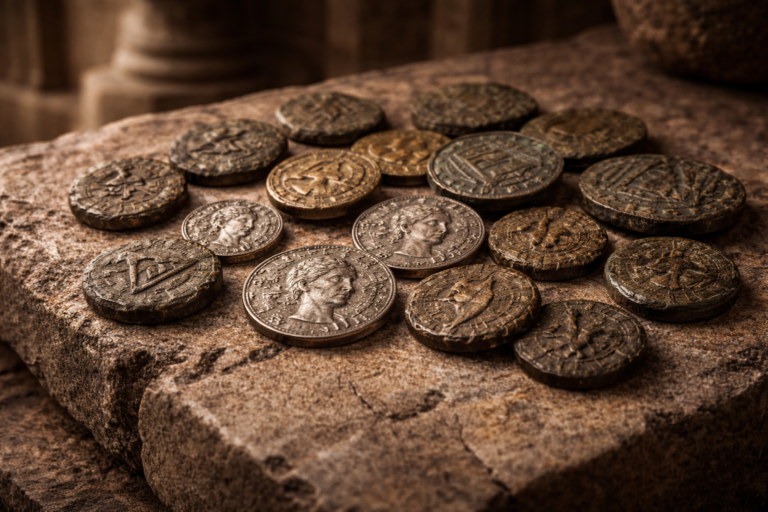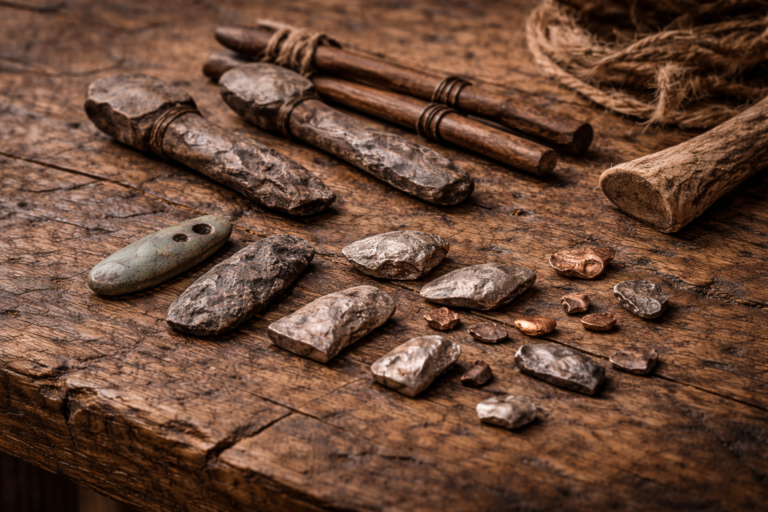Ancient Coin Collecting: A Beginner’s Guide
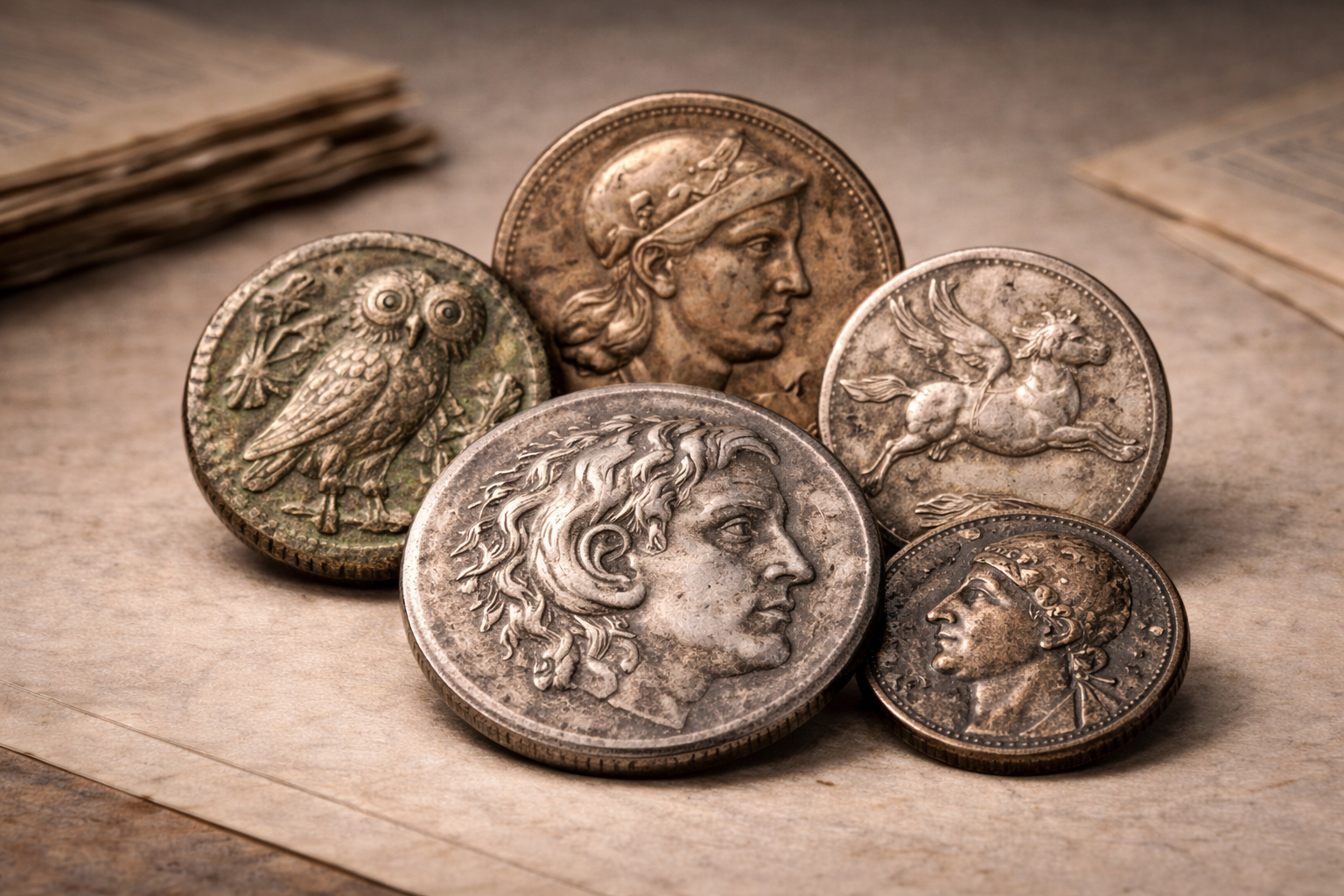
Ancient Coin Collecting: A Beginner’s Guide
Picture this: you’re at a flea market and spot a small, worn coin sitting in a dusty tray. The seller shrugs, calls it “old Roman,” and offers it for a few dollars. You pick it up, and in that moment, you’re holding history. That feeling—of touching something that passed through hands two thousand years ago—is what makes ancient coin collecting magical. This guide is here to walk you through the world of ancient coins step by step, from your very first piece to building a collection you’ll be proud of.
Why collect ancient coins?
Every collector has their reasons. Some love the art, some love the history, and others see it as an investment. Unlike modern coins minted by the millions, ancient coins are direct artifacts of human civilization. Think of ancient coin collecting as holding time capsules—tiny witnesses to empires, battles, and everyday life. Plus, they’re surprisingly affordable to start with. Many common Roman coins cost less than a night out at a restaurant.
A brief history of collecting
People have been fascinated with ancient coins for centuries. Renaissance nobles kept them in “cabinets of curiosity.” By the 19th century, museums and private collectors were building massive collections. Today, the internet has opened the field to anyone with curiosity and a modest budget. The tradition of ancient coin collecting connects you with a community that stretches back hundreds of years.
Getting started: what you need to know
Before you buy your first coin, learn the basics:
- Denarius, drachma, stater: these were common coin types in Rome and Greece.
- Obverse and reverse: heads and tails. The obverse usually shows a ruler or god; the reverse shows symbols, animals, or buildings.
- Patina: the natural surface aging of coins—collectors often value it.
Spend a little time reading before you spend money. Knowledge is your best first investment.
How to identify authentic coins
Authenticity matters. Here are simple tips for beginners:
- Check weight and size: real coins usually match known standards. A denarius, for example, weighed about 3–4 grams.
- Look for wear: most ancient coins show some smoothing. If it looks too perfect, be cautious.
- Study style: Roman and Greek engravings had distinctive looks. Cheap modern fakes often feel “off.”
With experience, your eye will improve. But when in doubt, seek professional help or stick to trusted sellers.
Common ancient coins for beginners
You don’t need to spend a fortune. Here are coins that are affordable and widely available:
- Roman bronze coins: often $20–$50, featuring emperors like Constantine or Valens.
- Greek drachmas: common issues from city-states can be found under $100.
- Byzantine folles: large copper coins, chunky and historic, starting from $30.
These coins are great entry points into ancient coin collecting, giving you a taste of history without draining your wallet.
Where to buy safely
Buying coins can be thrilling—but also risky if you’re not careful. Safe options include:
- Reputable dealers: find those with good reviews and memberships in numismatic associations.
- Auctions: live and online auctions often list authenticated pieces.
- Specialized marketplaces: websites dedicated to coins are usually safer than random online sellers.
Avoid “too good to be true” deals. If someone is selling a gold aureus for $50, it’s almost certainly fake.
How to avoid fakes
Forgeries are as old as coins themselves. To stay safe:
- Learn the common counterfeit methods, like casting.
- Compare coins to references online or in books.
- When spending serious money, ask for certificates of authenticity.
Remember: patience saves money. Don’t rush into buying rare coins before you’ve learned the basics.
Caring for and storing coins
Your coins are survivors of centuries. Treat them with care:
- Avoid cleaning: harsh cleaning can destroy value.
- Store properly: use coin flips, capsules, or albums.
- Control environment: avoid humidity and direct sunlight.
Handled carefully, your coins will last another thousand years.
Building a purposeful collection
Random coins are fun, but building with a theme makes collecting more satisfying. Options include:
- By civilization: Greek, Roman, Byzantine.
- By theme: animals, gods, emperors.
- By era: Republic vs Empire, Classical vs Hellenistic.
Having a theme also helps you focus your learning and budget.
The investment side
Is ancient coin collecting a good investment? Sometimes, yes. Rare coins in excellent condition can increase in value dramatically. For example, certain Roman aurei that once sold for hundreds now sell for tens of thousands. But approach this hobby with passion first. Think of investment as a bonus, not the main reason.
Joining the community
You’re not alone. Coin clubs, online forums, and social media groups are full of enthusiasts willing to share knowledge. Attending coin shows is another great way to learn and make connections. The community aspect is one of the most rewarding parts of the hobby.
Reality Check
Most ancient coins are not worth millions. In fact, the majority are affordable bronze pieces. Don’t be discouraged if your first coins aren’t rare treasures. Every collector starts small. The real value is in the journey—learning, discovering, and connecting with history.
Final Verdict
Ancient coin collecting blends history, art, and personal discovery. It’s a hobby where every purchase tells a story, and every coin connects you to centuries past. Whether you’re in it for passion, learning, or investment, the world of ancient coins is open and waiting. All you need is curiosity and patience.
Frequently Asked Questions
Is ancient coin collecting expensive?
Not necessarily. Many Roman and Byzantine bronze coins cost less than $50, making the hobby accessible to beginners.
Where can I buy ancient coins safely?
Trusted dealers, coin shows, and established auction houses are the safest options. Avoid random online sellers without reviews.
How do I know if a coin is authentic?
Check weight, size, and style. Compare with references or seek professional authentication, especially for expensive coins.
Should I clean ancient coins?
Generally no. Cleaning can damage coins and reduce value. Leave them in their natural state unless handled by experts.
Are ancient coins a good investment?
Some rare coins appreciate greatly, but the hobby should be driven by passion for history first, and profit second.
